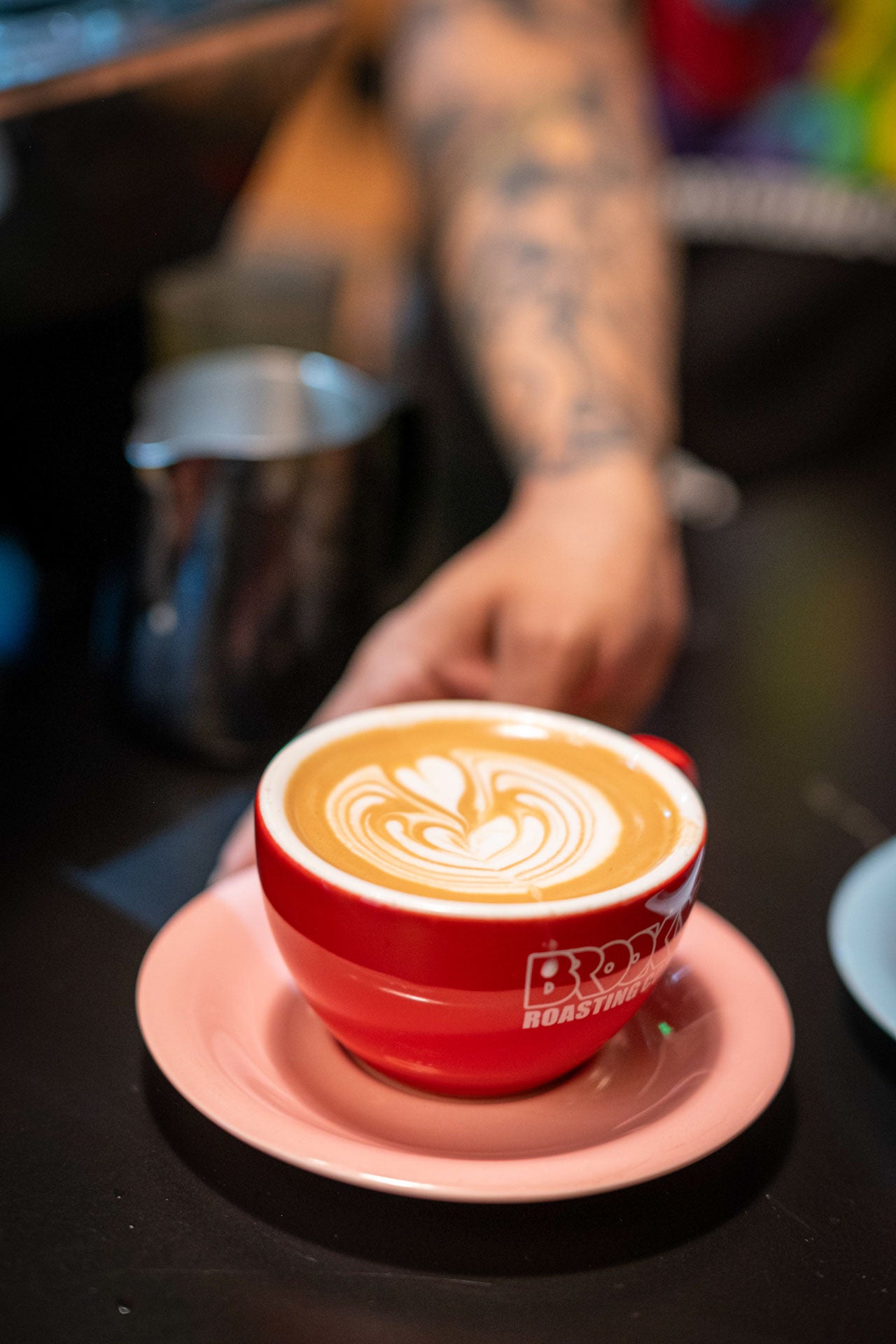History
The Brooklyn Roasting Company was founded in Williamsburg, Brooklyn in 2009 with one clear goal in mind: To provide NYC with best quality, sustainably-sourced coffees roasted to perfection and presented to consumers unpretentiously. Today, BRC is New York’s leading homegrown coffee roasting company, servicing hundreds of high-end wholesale accounts across the 5 boroughs and operating a handful of connoisseur-quality cafes.
Located in the historic Brooklyn Navy Yard, our production headquarters in Building 123 was originally built in 1899 as an industrial powerplant. With soaring, sixty foot ceilings and brick walls that are two feet thick, our East River waterfront facility houses state-of-the-art commercial roast, pack, and quality control departments. We are proud that Building 123 was the first LEED-certified building in the Navy Yard. Our commitments to sustainable packaging (tin steel cans and recyclable wholesale delivery totes), fuel efficient industrial roasting technology (Loring Peregrine and Kestrel roasters), and green coffee sourcing aimed at transparency and sustainability (90% of our coffees are Fair Trade certified) exemplify our ethical approach to business.
Our core commitments to diversity in the workplace and progressive Fair Trade purchasing standards set us apart from our competition. We are particularly proud of the many strong relationships we have forged with vendors, coffee farmers, employees and customers.
We believe that making delicious coffee is a fundamentally simple proposition: Grind freshly-roasted, high-quality beans into clean brewing equipment and add near-boiling filtered water. Wait a couple of minutes and voila! A perfect cup of piping-hot coffee. Our employee and wholesale training programs stress the importance of trusting your senses rather than relying upon digital equipment. Developing a feel for how to create flavor in a cup is paramount.
Our business philosophy is easily summarized: We are serious but not snobby, practical not pretentious, accessible not exclusive. Like Brooklyn, we are bold, brave, colorful and creative. The outline of our logo, like the boundaries of the borough of Brooklyn, never changes, but what’s inside —the colorful characters of our coffees, our customers, and our employees— is always changing.
We believe coffee is an inspirational beverage and supports the life of the mind in general. Our commitment to supporting local institutions, like the Brooklyn Academy of Music, the Brooklyn Museum, the New York Public Library stand out as examples. We celebrate Brooklyn’s centuries-old coffee heritage and aim to advance it in our own inimitable way.

